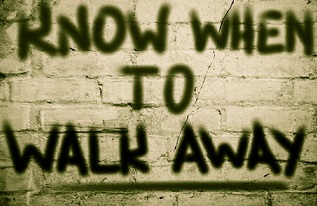How many times have you tried leaving your addicted partner only to let them right back in? Do you feel like you cannot live with or without this person and want to know how you can move on? When leaving an addict seems like an impossible decision and an even more impossible action, there are things you need to know that can help you get through.
Here, we explore the emotional pain behind the decision to leave an addict. Then, we invite your feedback, questions, or personal stories at the end. In fact, we try to respond to every comment with a personal response.
How can you make the pain stop?
The majority of comments people post on my blog end with statements like, “I keep going back and I am dying inside. How can I make this stop?” It is scary to make a change and leave someone you are in love with. It can be the most painful experience. It feels like a black cloud is looming over you. You feel as if no one person can understand how you feel. You do not know how to make it stop.
But here are a few things to keep in mind as you start to consider your partner’s addiction and how it impacts you:
1. Loss is normal.
When you lose someone you love to their addiction, you are experiencing loss. It is very natural to have feelings of despair, hopelessness, sadness, depression, anxiety, and fear. When you are having these emotions, you are experiencing a normal response to this type of situation. It would be abnormal to feel happiness, joy, and gratitude when you are watching the person you love destroy themselves.
2. Your position is situational.
Nothing lasts forever and all things either change or come to an end. Knowing that you are in a situation where your emotions are responding in the appropriate manner, you can also understand that these feelings are situational, meaning they will not last forever.
When you leave an addict you may experience pain, loss, heartache, depression, and an array of negative emotions. These emotions are not static, they are transient. You will never be completely depressed or sad over something situational for the rest of your life. The hard part is getting through and sorting out those feelings, but if you believe it will get better, it will.
If you let your emotions determine how you are, then you can allow yourself to wallow in the sadness. If you experience the emotions, go through them, do not avoid them, eventually they will lessen and then go away.
3. The hardest part is the leaving: It gets worse and then it gets better.
Knowing that the hard part really is leaving but there will come a point when it will be the best decision you ever made is the hope and inspiration you can channel to get you through the hard part.
The following is an addictionblog.org post from the wife of an addict.
“I realize now that all my fears of how difficult things would be were justified, it is difficult and painful, but making the decision to let go was the best and what took the most courage. Alongside the sadness, shock, numbness, anger, fear, and loss has also sprouted hope, clarity, joy, courage, and a greater sense of empowerment and self-love. I laugh more and cry less each day that goes by. Each bad day I take it as just a part of the journey and not as an indication that life will always be this difficult and overwhelming.”
Leaving an addict pays off in the end
If you have faith that change and an end to the pain and sadness is inevitable then you can change your perspective on what leaving actually represents. Leaving an addict is a hard choice that will pay off in the end. You may have to struggle, but you are guaranteed a new chance at life.
Being awake in your life and embracing happiness is usually preceded by a courageous journey. A renewed sense of gratitude is your reward.









Related Posts